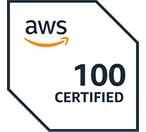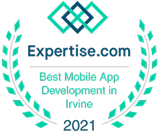Table of Contents
In the current economic climate, businesses rely increasingly upon IT tools and solutions to get ahead of the competition. Therefore, the ongoing development of software is essential to update and upgrade your IT systems. As such, professional expertise in software development is an important skill set to have access to to enable business growth.
Not all companies have in-house software consultancy teams with the expertise or skill sets required. This is where software consultancy services come into their own, filling the gap between your in-house team’s skill set and expertise and that needed for your ongoing business growth.
Hiring a software consultancy service to evaluate your businesses enables you to make informed decisions that can enhance your business operations.
Continue reading to discover what the role of a software consultancy service is and when to hire one for your business.
What Is Software Consulting?
Software consulting is where a business hires an individual or software consultancy agency to advise on the development process, implementation practices, general software development tasks and to develop ideas. The goal of hiring software consulting services is to optimize the development process and ensure a smooth development transition from ideation to deployment. To simplify, software consultancy allows industry professionals to provide valuable insights to non- or less-, technically experienced businesses.
What Do Software Consultants Do?
When engaging with software consulting firms, it’s crucial to have a clear understanding of their responsibilities and methodologies. This insight enables effective collaboration and alignment with your business’s software development objectives. By understanding the role of software consultants, you can anticipate how their activities influence the quality and efficiency of your software development project.
Understanding Your Business Needs
A primary function of software consultants is to thoroughly explore the activities and administration of your business. This involves a comprehensive exploration of your business models, products, services, customer demographics, and industry regulations. Through meticulous research and effective communication, consultants aim to understand your business’s unique challenges and the specific software requirements needed to solve those challenges.
This function is not just about gathering information but about being immersed in your business landscape and getting to know how your business functions on a day to day basis. The aim is to grasp the nuances that will shape their strategic recommendations, ensuring that the proposed solutions align seamlessly with your business objectives.
Recommending Tailored Solutions
Building on the foundation of understanding how your business operates, software consultants provide another crucial function—offering recommendations. These recommendations are meticulously crafted to address your business’s major pain points. Consultants go beyond generic advice, tailoring strategies and roadmaps that outline practical steps to achieve your specific software goals.
This function extends to assisting in the creation of detailed project specifications or producing technical documents. The objective is to translate strategic recommendations into actionable and achievable plans that align with your overarching business objectives.
Implementing Technology Strategies
A hands-on function of software consultants involves actively contributing to the implementation of technology strategies. Collaborating closely with your dedicated development team, consultants play a vital role in the actual development of the software. This phase is marked by ensuring that the chosen strategies optimize the software development process for efficiency and effectiveness.
The involvement of a software consultant during the implementation phase ensures that technology strategies seamlessly align with the broader objectives of your business. Their function is not simply advisory but extends to overseeing the execution of the recommended solutions.
Providing Training and Support
Recognizing the importance of knowledge transfer, software consultants also provide training and ongoing support. As the newly developed software integrates into your operations, consultants conduct training sessions to facilitate a smooth transition. Ongoing support is a crucial aspect of this function, addressing any queries or challenges that may arise post-implementation.
Empowering your team with the necessary skills is instrumental in maximizing the benefits of the implemented software which is why consultants are committed to training and after project completion support. The provision of continuous support reflects their function in contributing to the long-term success of your software solutions.
Why Do Companies Hire Consultants?
Companies are increasingly turning to software consultants, due to the significant role they play in navigating the complexities of software development. Companies choose to hire software consultants for various reasons. These include the following.
Strategic Planning
Companies seek the expertise of software consultants for strategic planning, tapping into their perspective as an outsider and their expert industry knowledge. Consultants assist businesses in crafting comprehensive strategies that not only inform effective decision-making but also align software development seamlessly with broader organizational objectives.
Updating Existing Systems
The rapid evolution of technology and the growing trend of building customer software development often requires that you update your technology stack, cloud or local infrastructure, modernizing existing systems. Software consultants help in this area by conducting thorough assessments of legacy applications and recommending strategic upgrades. Their insights enable businesses to breathe new life into technology infrastructure, enhancing efficiency and maintaining competitiveness in a swiftly changing market.
Cost Optimization
Considering the pivotal role that costs play in business decisions, companies enlist consultants to get the most out of their software development expenditures, particularly focusing on optimizing the software development budget. Software consultants, with their astute understanding of cost-effective development practices, guide businesses in streamlining processes without compromising quality. Through meticulous analysis and recommendations, consultants can contribute to significant cost savings.
Risk Mitigation
The intricacies of software development come with inherent risks that can pose substantial challenges. Companies engage consultants to proactively identify potential pitfalls, propose preemptive measures, and implement risk-mitigation strategies. This proactive approach ensures businesses navigate uncertainties successfully, leading to the effective implementation of software projects.
Making Better Technical Decisions
In a landscape inundated with technical choices, businesses lacking extensive IT expertise rely upon software consultants for guidance. Consultants provide informed advice on technical decisions, from selecting development frameworks to recommending optimal technologies. This empowers businesses to make well-informed choices tailored to their specific business needs and goals.
What Is the Process of Software Consulting?
In software consulting, the process unfolds in a series of carefully structured stages, each designed to ensure a seamless and effective journey from project conception to implementation. Let’s take a closer look at the key components of the software consulting process.
Initial Consultation and Assessment
The software consulting journey begins with an in-depth initial consultation and assessment. During this phase, consultants engage closely with you, aiming to thoroughly understand the intricacies of your business. This involves exploring your business model, products and services, customer demographics, and essential industry regulations. By immersing themselves in your business, consultants gather crucial information that serves as the foundation for their later recommendations.
This initial stage also involves comprehensive research into your online presence, from websites to social media accounts. Direct and effective communication with you ensures a holistic understanding of your business’s problem areas and your core software requirements. You should expect a multitude of questions as consultants meticulously gather the information needed to formulate a strategic approach to software development. In this stage, you will be asked several questions to ensure that the consultant has gathered accurate information.
Strategy and Road Map Development
Armed with a comprehensive understanding of your business, software consultants move on to the development of a strategic roadmap. This phase involves leveraging the gathered information to recommend solutions that specifically address your business’s major problem areas. Consultants tailor their advice, providing a roadmap that outlines the practical steps required to achieve your software goals.
Additionally, consultants may assist in creating detailed project specifications or producing technical documents that highlight the most desirable development frameworks. This stage is essential in providing your business with a clear and actionable plan for its software development journey.
Implementation and Integration
With the strategy and road map in place, the software consulting process advances to the implementation and integration phase. Consultants actively contribute to the execution of the recommended solutions, working collaboratively with your development team.
This stage involves the actual development of your software, where the outlined roadmap takes shape. Consultants ensure that the implementation aligns seamlessly with your strategic plan, optimizing the development process for efficiency and effectiveness. You should consider hiring a software company that undertakes both consultancy and development for additional project cohesion.
Training and Support
Recognizing the importance of knowledge transfer, software consultants emphasize training and support as integral components of the process essential to the ultimate success of the project. As the newly developed software is integrated into your business’s operations, consultants provide training sessions to ensure a smooth transition.
Ongoing support is also offered, addressing any queries or challenges that may arise after completion. This commitment to training and support ensures that your team is well-equipped to maximize the benefits of the implemented software.
Key Factors to Consider When Hiring a Software Consulting Service Provider
Hiring a software consulting company is not as straightforward as it may sound. There are criteria that you should consider before hiring a consultant. However, being armed with the information outlined in this article equips you to make an informed decision. To help you make the right choice when choosing a development company for a consultancy, let’s explore what you need to look for, as well as what to expect during the consultation process.
Criteria for Selection
Knowing how to identify a quality software consultancy company is the main challenge in hiring a firm. You’ll easily find many options, but selecting the one best suited for your business and product can be challenging. Below is what you need to look for:
- Expertise and Experience: What expertise and experience does the consultancy firm advertise and does their knowledge relate to your project? For example, if you’re building an iOS mobile app, you’ll need to work with a firm that has extensive proven experience in iOS app development so that you can be confident they know the best processes. Identifying their expertise is as simple as reviewing the firm’s project portfolio.
- Industry-Specific Knowledge: You’ll need to identify whether the consultancy company has experience specific, not only to your type of development, but also to your industry. This may not be a “make or break” criteria, as a solid knowledge of development type goes a long way. However, an understanding of industry trends, conventions, and regulations is preferable–this way you can be certain that your software will meet industry standards.
- Client Testimonials and Case Studies: Another key area to review is client testimonials and case studies. Evaluating the success of previous projects and client satisfaction gives a clear indication of the service provided and deliverables quality. You can find client testimonials by browsing consumer trust sites like Clutch.co.
Establishing a Partnership
As your software development comes to an end, you may wish to establish a long-term partnership with your consultancy firm. This means that you’ll have someone to turn to for expert support and advice on your software throughout its lifecycle. For example, if you decide to add new features and integrations, you can contact your trusted consultancy firm instead of going through the arduous process of hiring a new team. Maintaining such a relationship eases the burden of software maintenance and ensures a solid long-term strategy.
Red Flags to Watch Out for When Hiring a Consultant
Of course, while there are several factors you should look for in a software consultancy company, there are also a number of red flags to consider too. If you find a consultancy firm that presents some of the following issues, it would be wise to be cautious.
- Delayed Communication: The success of your software is your priority and while your consultant may be working on other projects, they should manage their time effectively, allowing them to respond to your queries in a timely manner. If your consultant consistently delays communication, reconsider their commitment to your project and how effective their time management skills are.
- Missing Calls: In the same vein as delayed communications are missing calls. If you schedule a call with your consultant and they’re unable to attend at the last minute, this is a sign of inexperience, poor management skills, and a lack of reliability. Rescheduling calls is acceptable, but ample notice should be given.
- Asking Little to No Questions: As we’ve discussed in this article, a software consultant should ask many questions about your business and its processes, allowing them to better direct your development. As a result, if you feel that your consultancy firm has not gone into enough depth during the initial consultation and assessment phase you should consider looking elsewhere.
Want to Hire a Software Consultant? Idea Maker Can Help
If you’re looking for a software consultant company that ticks all the boxes, you’re in the right place. But why stop with consultancy? Why not work with a company that can develop your software, too. This synergy of expertise leads to a cohesive development experience with implementation strategy development.
At Idea Maker, we have a team of highly talented and experienced software developers and project managers dedicated to providing your business with software that elevates and enhances its operations. All you need to do to get started is schedule a free consultation with us today.















